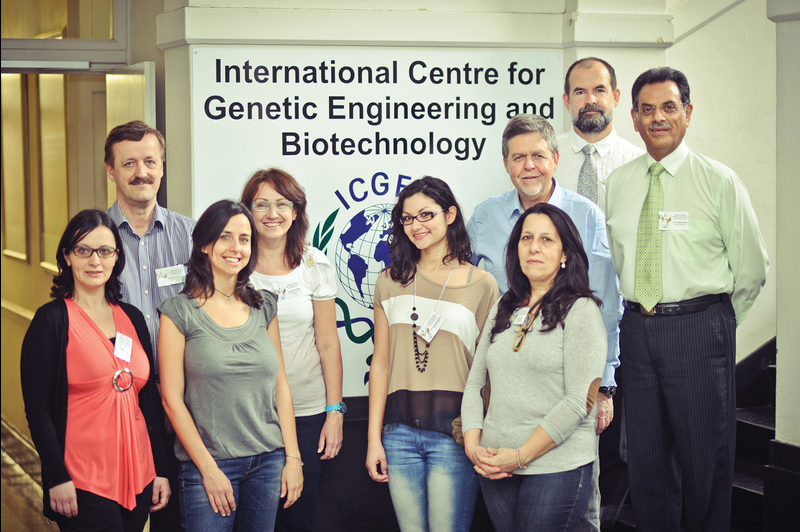Symposium explores nanotechnology for drugs, bio-engineering
27 March 2013 | Story by Newsroom
The role and use of bionanoparticles and nanohybrids is revolutionising science, and particularly medical science, where applications range from tissue engineering to the delivery of novel drugs.
A timely symposium on nanotechnology was hosted at UCT in March, under the auspices of VAIKUTUS, a European Union FP7-PEOPLE-funded project under the auspices of the International Research Staff Exchange Scheme (IRSES).
This is co-ordinated by the University of Helsinki's Professor Andriy Grafov, whose institution hosted the first VAIKUTUS Project Seminar in 2012.
The project brings together a cross-section of expertise to develop new therapies using novel inorgano-bio-organic nanocomposites for biomedical and engineering applications. Nanotechnology took centre stage on the second one-day symposium on 15 March, the forerunner to the second VAIKUTUS Project Seminar from 16 to 20 March.
"Nanotechnology is a rapidly growing area," said Professor Iqbal Parker, host and head of the Centre for Genetic Engineering and Biotechnology (ICGEB) South Africa's official partner in the project. The ICGEB is an international organisation dedicated to advanced research and training in molecular biology and biotechnology, with special regard to the needs of the developing world. It has components in Italy, India and South Africa - the latter being based at UCT.
Nanoparticles underpin new technology for the production of biomaterials used in bone regeneration - chemical polymers on which bone can grow - or for skin grafts in burn patients. They also provide new vehicles for packaging drugs, bio-conjugate drugs that can be released slowly for greater efficacy, or delivered to targeted areas such as cancer sites in the body.
The Department of Science and Technology has recently published a nanotechnology strategy for South Africa, recognising the importance of this emerging area of research.
"It is important not just in the physical sciences, but also to medical science where the use of nanoparticles has novel applications in drug delivery and tissue engineering," added Parker.
Partners in the consortium - cell and molecular biologists, as well as materials, polymer and organic chemists - work in Finland, Brazil, Italy, the Ukraine and South Africa. Locally these scientists are based in the ICGEB, as well as UCT's Division of Medical Biochemistry and Department of Chemistry.
Of interest to the VAIKUTUS Consortium are both conventional non-biodegradable metal nanoparticles and bionanoparticles that are degradable by the body's enzymes.
Importantly, there is a capacity-building element to the project. The partnership agreement forges one-to 12-month North-South exchange programmes for postdoctoral research fellows and postgraduate students, fostering the exchange of knowledge and skills. This is funded by IRSES.
On a larger scale, the Brazilian delegates shared their research on anti-malarial and cancer drug compounds derived from plants in the Amazon. Members of the consortium are testing these for treating diseases such as malaria and cancer, Parker confirmed.
"Six plants have already been identified for anti-malarial activity and members of the Consortium are in discussions with Professor Kelly Chibale at UCT's H3-D Centre for future collaborative projects."
 This work is licensed under a Creative Commons Attribution-NoDerivatives 4.0 International License.
This work is licensed under a Creative Commons Attribution-NoDerivatives 4.0 International License.
Please view the republishing articles page for more information.










